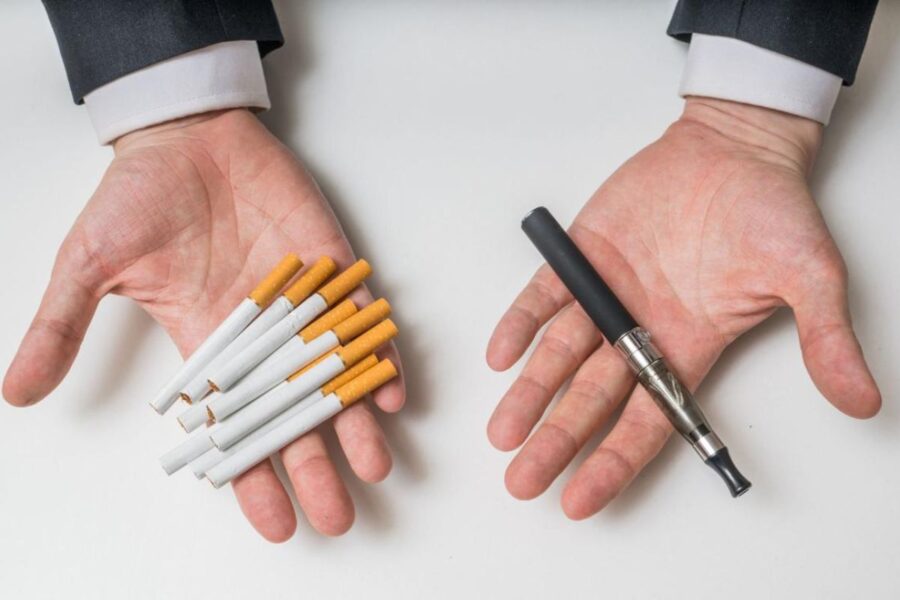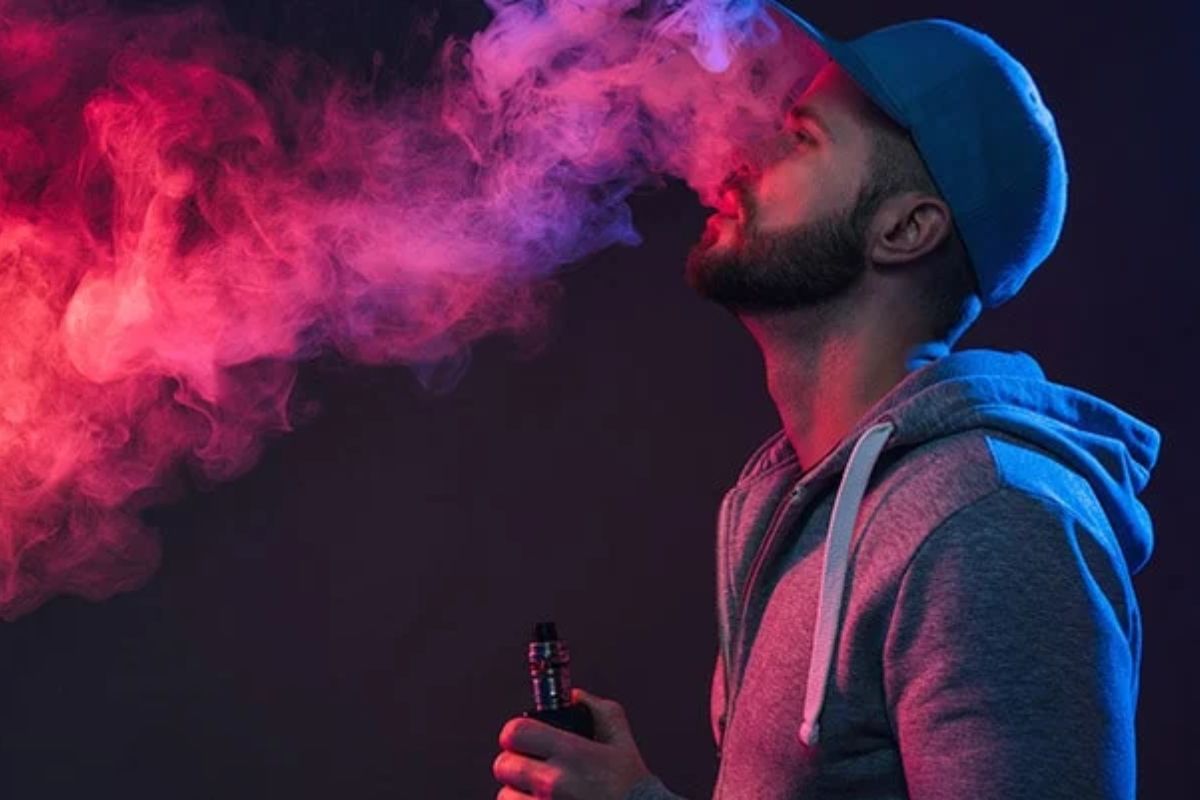Alabama Bid to End Indoor Vaping: In recent years, the rise of vaping has sparked debates and concerns regarding its impact on public spaces. Now, Alabama is taking a stand against indoor vaping disturbances in public venues. This bid has garnered attention from both supporters and skeptics, each offering their unique perspectives on the matter.
While some argue that vaping poses no harm to others, there is a lack of concrete data on the potential risks of second-hand vaping. Personal experiences of individuals who have been affected by indoor vaping disturbances highlight the vulnerability of certain groups.
As the discussion unfolds, it becomes crucial to consider the implications of this bid and its potential impact on public health and individual freedoms.
Key Takeaways
- Public support for the Alabama Clean Indoor Air Act is driven by concerns for health and well-being.
- There is a lack of comprehensive data on the health impacts of second-hand vaping, highlighting the need for more research.
- Personal stories highlight the negative health effects of second-hand vape, emphasizing the need for comprehensive policies to protect vulnerable populations.
- The implementation of indoor vaping bans faces challenges in enforcement and compliance, requiring education and awareness campaigns.
Introduction and Background Information
The implementation of the Alabama Clean Indoor Air Act has sparked a debate surrounding the regulation of vaping in public places. The act aims to curb vaping in malls, restaurants, and other public venues throughout the state. The proposed bill has ignited discussions about the potential health hazards associated with second-hand vape smoke.
Vaping, the act of inhaling and exhaling aerosol produced by an electronic cigarette or similar device, has gained popularity in recent years. While some argue that vaping is a safer alternative to smoking traditional cigarettes, others express concerns about its long-term effects on health.
One of the primary concerns is the potential for second-hand vape smoke to be harmful. Unlike traditional tobacco smoke, which contains a multitude of known carcinogens, the exact composition of second-hand vape smoke is still being studied. However, preliminary research suggests that it may contain harmful chemicals and particles that could pose risks to bystanders.
Proponents of the Alabama Clean Indoor Air Act argue that restrictions on vaping in public places are necessary to protect the health and well-being of individuals. They assert that everyone should have the right to breathe clean air, free from potentially harmful substances. On the other hand, opponents of the act claim that such regulations infringe upon personal freedoms and argue that more research is needed to fully understand the health effects of vaping.


Public Support and Individual Perspectives
Public support for the proposed law on ending indoor vaping disturbances is evident among individuals who prioritize health concerns and view it as a measure to promote public well-being. Izabella Barr, a mother of young children, expresses her support for the law due to health concerns. She emphasizes the peace of mind the law would bring, knowing that her children are not being exposed to potentially harmful second-hand vapor.
Supportive individuals see the legislation as a matter of good manners and common courtesy. They believe that vaping indoors can be disruptive and bothersome to others in public venues such as restaurants, theaters, and shopping malls. By banning indoor vaping, these individuals argue that it will create a more pleasant and comfortable environment for everyone.
Moreover, some supporters of the proposed law believe that it will help to reduce the normalization of vaping, particularly among young people. They argue that by prohibiting vaping in public places, it sends a message that vaping is not a socially acceptable behavior, similar to smoking. This, in turn, may discourage young people from taking up vaping and help to protect their health in the long run.
Lack of Data on Second-hand Vaping
Concerns about the potential harm caused by second-hand vaping arise due to a lack of comprehensive data on the subject, as highlighted by Dr. Karen Landers from the Alabama Department of Public Health. While there is preliminary data available, it is not sufficient to draw definitive conclusions about the health effects of second-hand vaping. This lack of data has raised questions about the risks associated with vaping in enclosed spaces such as public venues.
Dr. Landers acknowledges that vaping is a relatively new phenomenon, and as a result, there is still much to learn about its potential health impacts. Research on second-hand vaping is limited, making it challenging to assess the extent of the risks posed to non-vapers. In order to make informed decisions and develop effective policies, it is crucial to have comprehensive data that examines the potential health effects of second-hand vaping.
Given the limited information available, it is crucial to approach the issue with caution and maintain a balanced perspective. While some studies suggest that second-hand vaping may be less harmful than second-hand smoke from traditional cigarettes, it is still important to consider the potential risks to vulnerable populations, such as individuals with underlying health conditions or children. Further research is needed to better understand the potential harm caused by second-hand vaping and to inform appropriate regulations and policies.
Personal Experiences and Vulnerability
Personal narratives provide valuable insights into the experiences and concerns of individuals who have been exposed to smoking, highlighting the urgency felt by those with a history of vulnerability. Izabella Barr, in her personal account, shares her experiences with exposure to smoke throughout her life. Barr’s vulnerability to both traditional cigarettes and vapes contributes to her concern. Her story resonates with many others who have similar experiences.
Here are three key points that emerge from personal narratives:
- Impact on health: Personal stories often reveal the detrimental effects of second-hand smoke on individuals’ health. Exposure to smoke can lead to respiratory issues, heart problems, and even cancer. These accounts emphasize the urgent need for measures to protect vulnerable individuals from the harmful effects of smoking.
- Emotional distress: Personal narratives also shed light on the emotional distress caused by exposure to smoke. Individuals with a history of vulnerability may experience anxiety, fear, and frustration due to their heightened susceptibility to the effects of smoking. These stories underline the importance of creating smoke-free environments to alleviate the emotional burden on these individuals.
- Call for action: Personal narratives serve as a call for action. They illustrate the pressing need for comprehensive policies and regulations to protect vulnerable populations from the dangers of smoking. These stories provide a powerful voice for those who have been affected and advocate for change to ensure the well-being of all individuals, especially those with a history of vulnerability.


Call to Action
In light of the personal narratives shared and the urgent need to protect vulnerable individuals, it is clear that action must be taken to address the disruptions caused by indoor vaping in Alabama. The Alabama Clean Indoor Air Act represents a crucial step in ensuring the well-being of the public, particularly those who may be more susceptible to the negative effects of secondhand vapor.
To further emphasize the importance of this issue, it is helpful to consider the potential impact of implementing the Alabama Clean Indoor Air Act. The following table provides a balanced overview of the potential benefits and inconveniences associated with such a measure:
| Potential Benefits | Potential Inconveniences |
|---|---|
| Protection of public health | Restrictions on personal freedom |
| Improved air quality | Potential loss of business for indoor vaping establishments |
| Reduced exposure to harmful chemicals | Adjustments required for vaping enthusiasts |
It is essential for readers to stay informed about the ongoing legislative developments surrounding indoor vaping in Alabama. By keeping abreast of the latest news and engaging in the discourse surrounding this issue, individuals can actively participate in shaping the policies that will safeguard public health.
Conclusion of Alabama Bid to End Indoor Vaping
Addressing indoor vaping disturbances in public venues is crucial to protect individuals from potential health risks and maintain a comfortable environment for all. Despite the lack of concrete data on second-hand vaping, personal experiences and vulnerability highlight the need for action.
Public support and individual perspectives play a significant role in shaping policies to regulate indoor vaping. It is imperative for policymakers to consider the diverse range of opinions and experiences in order to create effective regulations.

